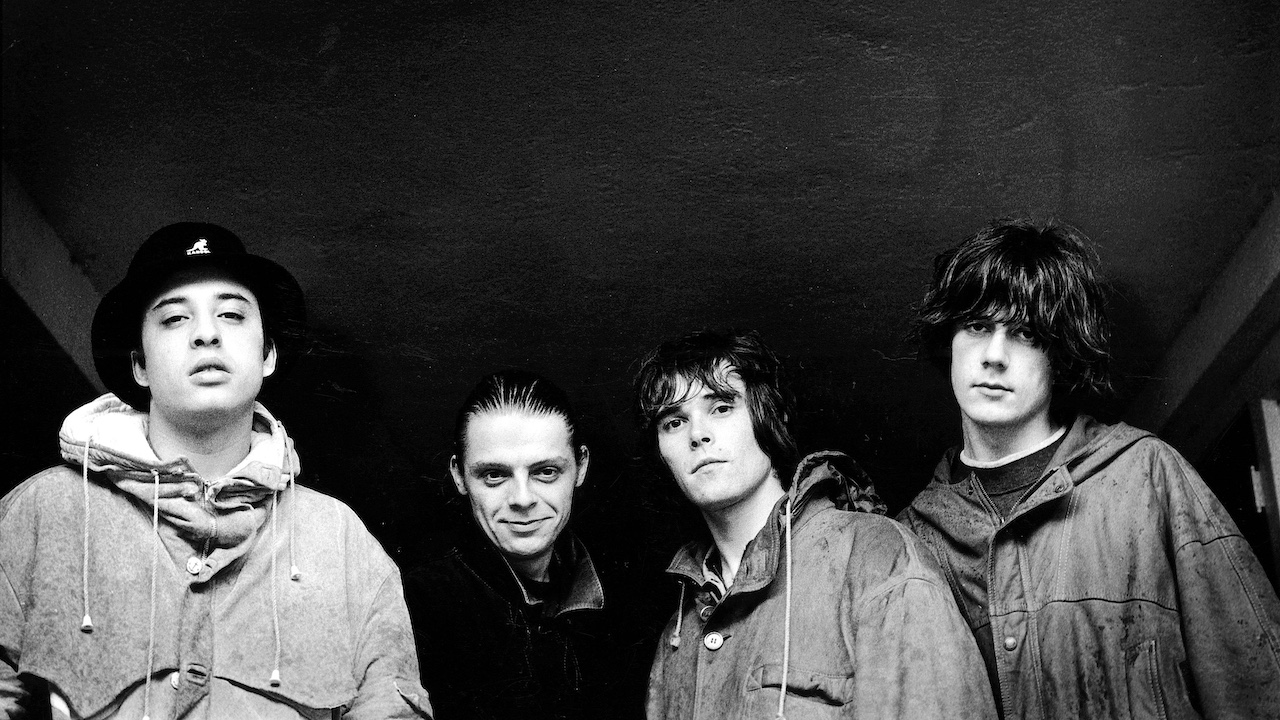The world waited a long time for the second record from The Stone Roses. The Manchester quartet had ushered in a new era in British music with their game-changing, self-titled 1989 debut, an album that blended 80s indie guitars with soulful grooves, rock’n’roll injected with the heady euphoria of rave dancefloors. Everyone wanted to know what they were going to do next, but The Stone Roses would not be rushed. Like, really not be rushed. They took the Guns N’ Roses approach on their second record, cheekily titled Second Coming, the album arriving a full five and a half years after its predecessor. It turns 30 next week.
They were determined to do things their way, even if it meant pissing people off. And that they did, ignoring the at-the-time mighty NME for a comeback interview and giving it to The Big Issue, the paper that supports homeless people and those at risk of homelessness, instead. They weren’t shy in explaining why.
“Somebody’s going to make money off us coming back, so it was the best thing to do,” frontman Ian Brown told The Big Issue’s Gary Crossing. “The last time the NME had us on the cover it was one of the biggest selling issues of the year. We’d rather the money went to helping the homeless than into the coffers of a big organisation like IPC. We thought let’s put something back. If somebody gets a house just by the four of us talking then it’s got to be worth it.”
Bassist Mani put it a little more bluntly: “The NME and all those magazines come to expect the right to an interview,” he stated. “Hopefully it will establish a trend and make all those comfy, complacent music journalists work a bit harder. After all, they’re just a bunch of sixth formers who’ve spent too long pogoing around their bedrooms with tennis rackets.”
When talk turned to that long-awaited record, they were equally as bullish. They addressed some of the rumours that had surfaced in their time away, that they’d got fat (they hadn’t), that they’d spent most of the money they’d received from a cushty major label deal (they sort of had), that they’d hired a fleet of cars and set fire to them (no! It was just one car), that producer John Leckie had left the project because it was moving too slowly for him (true), that the delay was down to the band rejecting a batch of songs written by guitarist John Squire (false).
It was mainly down to the fact that they saw no need in moving any quicker than they wanted to, they said. “After such a whacking delay, we thought, ‘Why rush it?’,” said Squire. “We were going to be criticised anyway so we thought we might as well make a good album.” The guitarist then wheeled out the age-old go-to phrase for musicians who haven’t got anything interesting to say. “We make music for ourselves, We’re pleased with what we’ve done so there ends the story. Anything else is a bonus.”
Frontman Ian Brown said the same, but with a little more panache. “Whatever response it gets is irrelevant to us,” he ventured. “When we first started out I knew we were going to do it. I knew our first LP was going to attract attention, inspire people, give them a buzz. I think this will do the same thing but the scale of what it does is out of our hands. Success is writing dynamic tunes for people and having peace of mind no matter what you do.”
Inevitably, the response was a little more muted than might have been expected, perhaps due to the fact Second Coming moved away from the dance-inflected sonics of their debut and into a sound influenced more by Led Zeppelin, Cream, Sly Stone and the Rolling Stones. In the interview, they talk about where they might go next, Mani claiming that, “We’re getting much better in the studio,” suggesting that the next record won’t take as long.
But that album never arrived and Second Coming remains The Stone Roses’ last full-length. They were full of confidence as it was about to be unleashed, but maybe they should’ve called it Final Folly instead. The Roses would come apart at the seams over the next couple of years, an acrimonious separation that remained frosty until they reunited in 2011… until they split up again in 2017.

